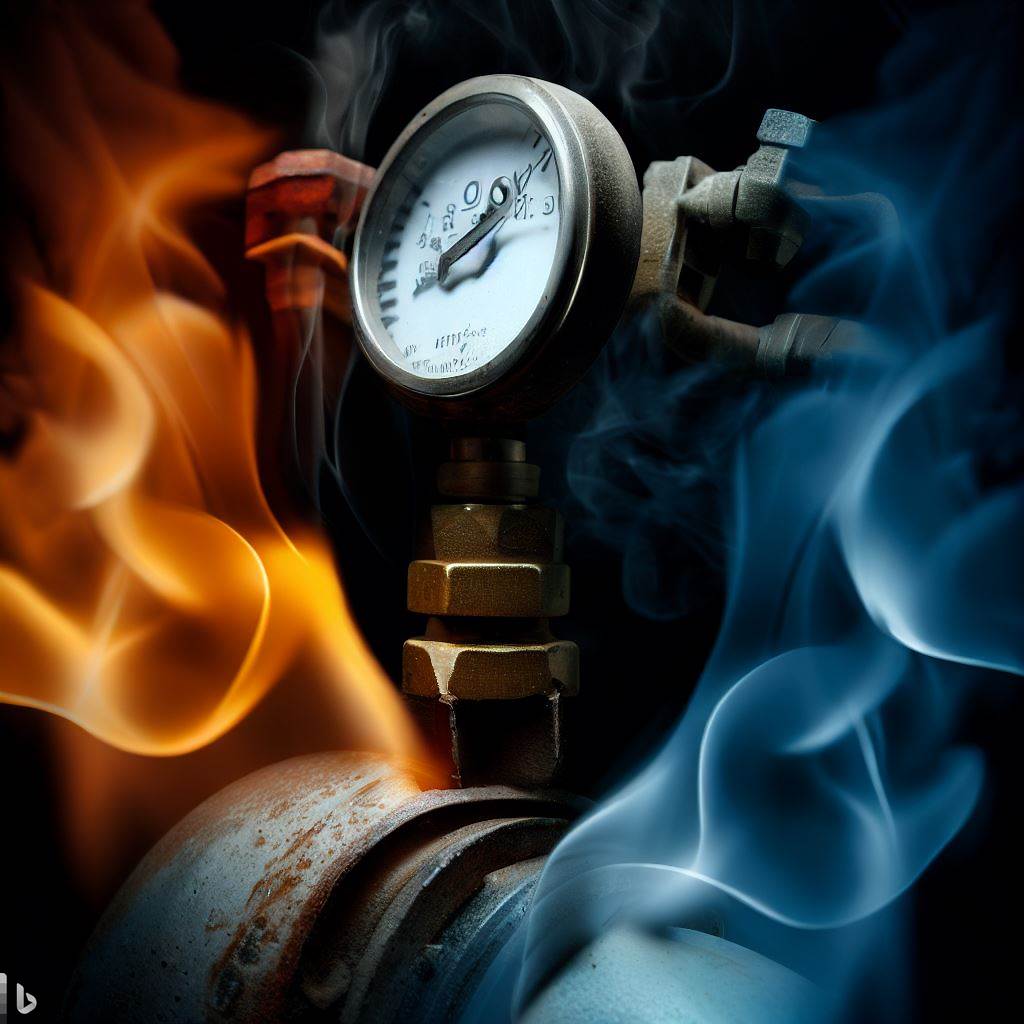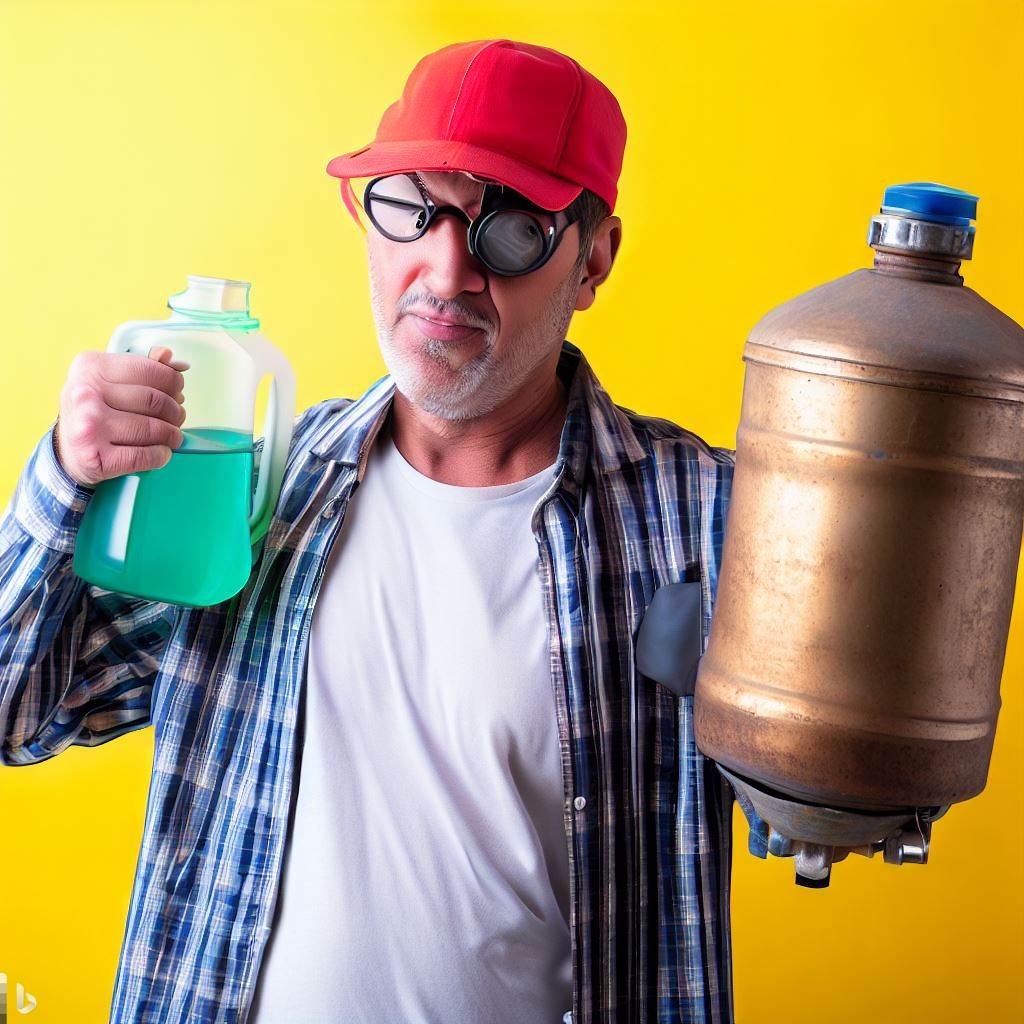Ever found yourself peering into a half-empty gas can, wondering if it’s still good? Or have you hesitated before pouring new fuel over the old bit left in your lawnmower’s tank? The big question: can you mix old and new gas? Do we dare blend the ancient with the fresh?
Well, let me put your mind at ease. Yes, mixing old and new gas is not only safe but could even help your engine run smoother. That said, there are a few caveats to keep in mind — all of which I’ll cover in this post.
So buckle up! Our journey through the world of gasoline mixology begins here. This isn’t just about learning how to make our engines purr happily; because at the end of the day, whether it’s siphoning stories or knowledge from one can (or brain) to another across generations—mixing is where real bonding happens…even for our beloved fuels.
Here is an article you might be interested in can you mow wet leaves
Here is also another exciting article to read can you weed whack when it’s wet
Potential Risks and Effects on Engine Performance when Mixing Old and New Gas
Mixing old gasoline with new can lead to various risks and detrimental effects on engine performance. While it may seem like a convenient solution to use up old fuel, there are several factors you need to consider.
When you mix old and new gas, one of the immediate risks is the potential for decreased octane levels. Octane is an essential factor in determining the efficiency of your engine. If the octane levels are too low, it can lead to knocking or pinging noises during combustion, reduced power output, and even engine damage.

Moreover, age-related degradation in gasoline can result in the formation of varnish-like deposits that settle in fuel lines, injectors, and carburetors. These deposits can clog crucial components within your engine’s fuel system over time. Consequently, this buildup restricts proper fuel flow and leads to poor performance issues such as hesitation, stalling, or rough idling.
Another significant concern when mixing old gas with new is water contamination. Over time, condensation occurs inside stored gasoline containers if they aren’t adequately sealed or kept in a climate-controlled environment. Water then mixes with the fuel and settles at the bottom of storage containers.
When added to fresh gas without proper separation or disposal of contaminated portions first; this water-infused mixture finds its way into your engine’s delicate mechanisms—causing corrosion damage inside critical parts like valves or cylinders.
To ensure optimal performance and avoid potential problems down the line; it’s best not to mix old gasoline with a fresh one before understanding more about preserving aged gas properly.
Proper Storage of Old Gasoline to Minimize Degradation
If you find yourself regularly dealing with aging gasoline due to infrequent usage or seasonal equipment utilization; implementing proper storage techniques becomes crucial for minimizing degradation:
1. Use Fuel Stabilizers: The addition of fuel stabilizers to your gasoline before storage plays a significant role in preventing oxidation and degradation over time. These additives work by slowing down the chemical reactions that lead to varnish formation and octane loss.
2. Store Gasoline in Airtight Containers: Using tightly sealed containers that minimize air exposure is essential for preserving the quality of stored gas. This prevents the intake of moisture, which can accelerate deterioration processes.
3. Keep Gasoline Away from Direct Sunlight: Exposure to sunlight can speed up the breakdown of hydrocarbons within gasoline molecules, leading to premature aging. Always store your containers in cool, dark places for optimal preservation.
4. Rotate Stored Gasoline Regularly: By using older fuel first instead of continuously adding new gas on top; you reduce the chances of old gas sitting around unused for extended periods and degrading further.
It’s important to remember that while these storage strategies minimize degradation effects on old gasoline, they do not reverse existing damage or increase its usable lifespan significantly.
Identifying the Age of Gas: Tips to Estimate Its Usability Map
Knowing how long your gasoline has been sitting unused is crucial when deciding whether it’s safe or advisable to mix it with fresh fuel:
1. Check Date Codes on Containers: Many portable fuel containers come with date codes imprinted somewhere on their surfaces indicating production dates or recommended expiration timelines.
2. Inspect Color and Clarity: Fresh gasoline tends to be clear and have a light yellowish tint without any visible sediments or particles floating around since impurities settle at the bottom after prolonged storage
3. Evaluate Smell and Odor Profile: Old gasoline often exhibits a pungent smell due to increased volatile compound evaporation over time; meanwhile, fresh fuel has a mild odor similar to petroleum products
4. Examine Phase Separation Signs: If water contamination has occurred within the gasoline, it causes a separation between the fuel and water layers. Check for visible evidence of phase separation in your storage container.
By considering these factors, you can get a general sense of the age and usability of your stored gas, which informs whether or not to mix it with fresh fuel.

How Different Types Of Fuel React To Aging
Different types of fuels react differently to aging due to variations in chemical compositions:
Ethanol-Blended Gasoline
Gasoline blended with ethanol tends to deteriorate faster compared to non-blended gasoline due to its higher vapor pressure and affinity for absorbing moisture. Consequently, the potential risks involved when mixing old ethanol-blended gas with fresh become more significant.
Non-Ethanol Gasoline
Pure gasoline without any ethanol content generally ages at a slower rate but is still susceptible to degradation over time if not properly stored. Combining old non-ethanol gasoline with new may have fewer immediate risks but should be approached cautiously nonetheless.
Diesel Fuel
Diesel fuel has a longer shelf life compared to gasoline due to lower volatility levels and reduced inclination towards oxidation processes or varnish formation over time.
Understanding how different types of fuel react as they age helps determine their viability for future use or when contemplating mixing them with newer supplies.
The Role of Fuel Stabilizers in Preserving Aged Gasoline for Future Use
Fuel stabilizers play an important role in preserving aged gasoline by slowing down degradation processes such as oxidation:
1. Prolonged Shelf Life: The addition of fuel stabilizers extends the usable lifespan of stored gas by inhibiting chemical reactions that lead to octane loss, varnish formation, or gum buildup—common symptoms associated with aging fuels.
2. Prevents Water Absorption: Some high-quality fuel stabilizers contain additives designed specifically to combat water absorption, helping minimize the risk of phase separation when gasoline is stored for long periods.
3. Reduces Gum Formation: Gum formation occurs when fuel components react with oxygen over time. Fuel stabilizers work by preventing these oxidation reactions, resulting in fewer gum deposits and improved engine performance.
4. Maintains Fuel Stability: By maintaining the stability of aged gasoline, fuel stabilizers ensure that it remains compatible with modern engine designs and does not cause any adverse effects when mixed with fresh supplies.
The Process Involved In Mechanically Cleaning a Fuel System Affected By Aged Gas
When the use of aged gas has already led to issues within your vehicle’s fuel system; mechanical cleaning becomes necessary to restore optimal performance:
1. Begin by inspecting critical components such as fuel injectors, carburetors (if applicable), and filters for signs of clogging or buildup. This helps identify areas requiring thorough cleaning.
2. Introduce specialized fuel additives designed for removing varnish deposits or impurities from your system. These products help dissolve contaminants while being circulated through the affected parts.
3. If severe buildup has occurred, consider physically removing affected parts like injectors or carburetors for intensive cleaning using appropriate solvents specifically formulated for each component type.
4. Finally, flush the fuel system. Flushing involves applying pressurized cleaning solutions directly into various openings within your vehicle’s fuel system to dislodge accumulated deposits effectively. This process ensures thorough cleansing and removal of any lingering residues.
Bear in mind that mechanically cleaning a heavily contaminated fuel system may require professional assistance if you lack experience performing such tasks yourself—ensuring proper handling and avoiding potential damage during the process.
Alternative Uses for Old Gasoline Instead Of Mixing it With New
If you find yourself with a significant quantity of aged gasoline that is unsuitable or risky to mix with fresh fuel, consider these alternative uses:
- Fueling Outdoor Equipment
Utilize older gasoline in lawnmowers, chainsaws, or other non-critical engines, where minor performance issues won’t cause severe damage.
- Starting Bonfires
Aged gas can be safely used as an accelerant to start bonfires or controlled outdoor fires provided proper precautions are taken.
- Cleaning Grease and Oil Stains
Use small amounts of old gas to effectively remove stubborn grease stains from tools or oil marks from driveways before disposing of the cleaning material correctly.
- Proper Disposal
If no alternative use exists, contact your local waste management facility or hazardous waste disposal center to ensure safe and environmentally friendly disposal following regional guidelines.
Remember that while finding alternative uses for old gasoline helps reduce waste; always prioritize safety and adhere to local regulations when handling potentially hazardous materials.
Summary
Mixing old and new gas carries several risks that could impact engine performance over time. By properly storing aged gasoline using fuel stabilizers and regularly rotating stored supplies; you can minimize degradation effects.
Identifying the age of your stored gas allows informed decision-making when mixing it with fresh fuel; ensuring optimal performance without compromising your vehicle’s longevity. Mechanically cleaning a fuel system affected by aged gas becomes necessary if problems arise due to prolonged usage of deteriorated fuels.
Finally, exploring alternative uses for unusable gasoline helps reduce waste while prioritizing safety and environmental responsibility
Read another exciting blog post here ceiling heaters for porches
This is the article to read for today charcoal alternative for grilling
FAQs
Q: Can I mix old gas with new gas?
A: It’s not the best idea. Mixing old gas with new can have some negative effects on your vehicle.
Q: What happens if I mix old gas with new?
A: When you mix old gas with new, it can mess up your car’s fuel system. The old gas may contain contaminants or have a lower octane rating, which can cause engine problems over time.
Q: Can I add a fuel additive to make the old gas usable?
A: Adding a fuel stabilizer or additive to old gas can help extend its life and make it usable. However, it’s important to note that this is a temporary solution and not a long-term fix.
Q: Will using old gas affect my fuel economy?
A: Yes, using old gas can lead to reduced fuel economy. Old gas doesn’t burn as efficiently as fresh gas, so your engine may not run as smoothly and your fuel efficiency may suffer.
Q: Can old gas damage my engine?
A: Yes, using old gas in your car can potentially damage your engine. The lower octane rating and decreased combustion rate in old gas can lead to engine problems over time.
Q: Is it recommended to mix old gas with new gas?
A: It is not recommended to mix old gas with new gas. It’s best to use fresh gasoline to ensure your engine runs smoothly and efficiently.
Q: How do I keep my gas fresh to avoid using old gas?
A: To keep your gas fresh, it’s recommended to use a fuel stabilizer and store it in a tightly sealed container. This will help prevent the gas from deteriorating and becoming unusable.
Q: What can happen if I continue to use old gas in my vehicle?
A: If you continue to use old gas in your vehicle, it can cause engine problems over time. The gas can clog fuel filters, damage spark plugs, and lead to decreased performance.
Q: Can using old gas in my lawn mower cause damage?
A: Yes, using old gas in your lawn mower can cause engine damage. The stale gas can lead to engine problems and may cause the mower to run less efficiently.
Q: Is there a way to compensate for old gas if I can’t avoid using it?
A: If you can’t avoid using old gas, you can try adding a fuel additive to help compensate for its effects. However, it’s always best to use fresh gasoline whenever possible.
